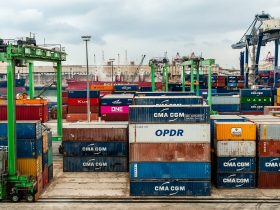
Mauritius’s main businesses
Mauritius, a small island nation in the Indian Ocean, has transformed its economy from a sugarcane-dependent industry into a diverse, dynamic hub for various sectors. Below is an overview of the main businesses driving the Mauritian economy:
1. Tourism
Tourism is a cornerstone of Mauritius’s economy. Known for its pristine beaches, luxury resorts, and unique biodiversity, Mauritius attracts millions of visitors annually. Key activities include eco-tourism, water sports, and cultural tourism. High-end hotel chains like LUX* Resorts and Beachcomber Hotels dominate the market, providing world-class hospitality and facilities.
2. Financial Services
Mauritius has established itself as a financial hub for Africa and Asia, offering a range of services such as banking, insurance, and investment funds. Its favorable tax regime and robust legal framework attract international companies. The Mauritius International Financial Centre (IFC) serves as a gateway for global investment into Africa, particularly in private equity and offshore banking.
3. Information and Communication Technology (ICT)
The ICT sector has seen rapid growth, supported by government initiatives and modern infrastructure. The island is a hub for business process outsourcing (BPO), software development, and IT services. Companies like Ceridian and Accenture have set up operations in Mauritius, leveraging the skilled and multilingual workforce.
4. Agriculture
Though its contribution to GDP has decreased over the years, agriculture remains a vital part of Mauritius’s economy. Sugarcane is the main crop, with exports forming a significant revenue source. Diversification efforts have expanded into the cultivation of tea, tropical fruits, and flowers, catering to both local consumption and export markets.
5. Manufacturing and Export-Oriented Enterprises
The manufacturing sector includes textiles, garments, jewelry, and food processing. Mauritius is a major exporter of apparel to Europe and the United States, benefiting from trade agreements like the African Growth and Opportunity Act (AGOA). Textile companies such as Ciel Textile have a strong global presence.
6. Real Estate and Construction
Real estate has experienced significant growth, especially with the introduction of schemes like the Integrated Resort Scheme (IRS) and the Smart City Scheme. These initiatives attract foreign investors, allowing them to purchase luxury properties in Mauritius. Real estate developments often include villas, golf courses, and marina projects.
7. Blue Economy
Mauritius leverages its extensive maritime territory to promote sustainable use of ocean resources. Key industries include fisheries, aquaculture, and marine biotechnology. The blue economy is a strategic area for long-term growth, supported by research and development initiatives.
8. Renewable Energy
The push for sustainable energy solutions has created opportunities in renewable energy, particularly in solar, wind, and biomass energy. Mauritius aims to increase its renewable energy capacity to meet its sustainability goals.
9. Healthcare and Education
Mauritius is becoming a hub for medical tourism, offering high-quality healthcare services at competitive prices. Education is another growing sector, with institutions attracting students from across Africa and Asia.
10. E-commerce and Retail
E-commerce is expanding, driven by increasing internet penetration and tech-savvy consumers. Local platforms like PriceGuru and MyCart.mu are thriving, alongside international players.
Conclusion
Mauritius’s main businesses reflect its adaptability and strategic positioning in global markets. From tourism and financial services to ICT and the blue economy, the nation continues to diversify its economy while fostering innovation and sustainability. These sectors not only generate employment but also position Mauritius as a competitive and resilient economic hub in the region.



Leave a Reply